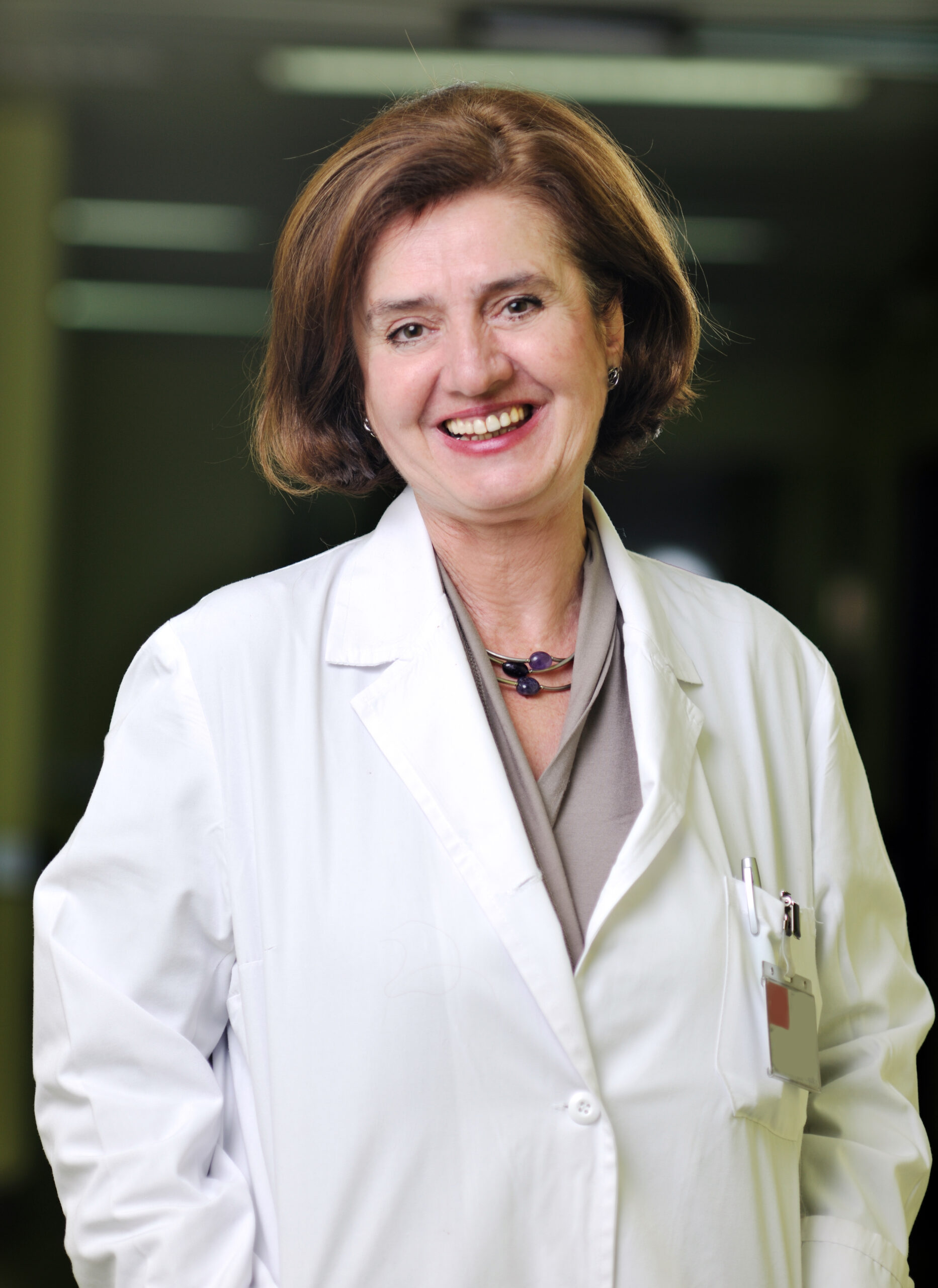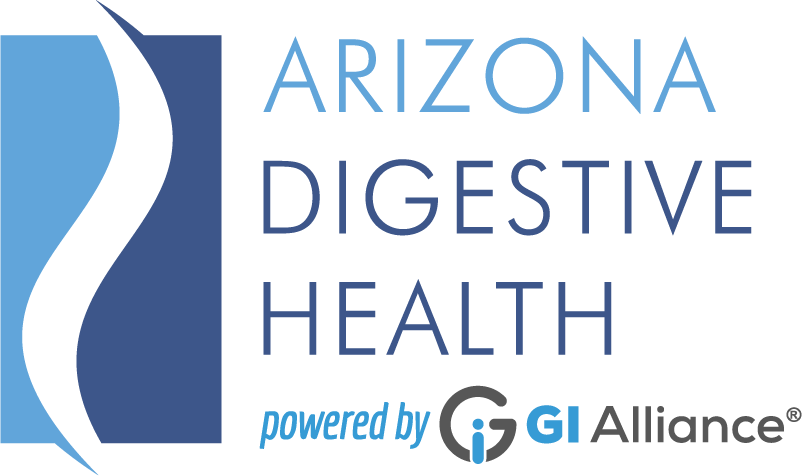What is a screening for colon cancer?
Colorectal cancer is the third most commonly diagnosed cancer, yet it’s one of the most preventable. The large intestine, comprised of the colon and rectum, absorbs water and nutrients and stores solid waste until it is expelled.
Colon cancer screening involves examining the colon and rectum for polyps and cancerous growths before symptoms arise. Polyps are benign but can turn cancerous over time. Early detection and removal of these polyps can prevent colon cancer and save lives.
Arizona Digestive Health’s board-certified gastroenterologists routinely perform these screenings and recommend starting them at age 45. To arrange your screening, contact an Arizona Digestive Health office in your area.

What are the benefits of a colon cancer screening?
Routine colon and rectal cancer screenings are key to your overall and gastrointestinal health. While several screening strategies exist, such as stool testing, a colonoscopy is the only preventive method for colorectal cancer. The benefits of colorectal cancer screenings include:
- Detecting other gastrointestinal issues like inflammatory bowel disease
- Potentially preventing the development of colon cancer
- Identifying and removing polyps in the colon and rectum
- Detecting colon or rectal cancer early
- Acting as a life-saving examination
Colon cancer may not show signs or symptoms until it is well advanced. Regular screenings enable your doctor to identify any problems as early as possible.
What colon cancer screening options are available?
Consulting with your GI doctor about when to start colon cancer screening and which tests are appropriate is essential. Here are some common tests for colon cancer screening:
- Flexible sigmoidoscopy: This test uses a thin, flexible tube with a camera called a sigmoidoscope to examine the rectum and lower colon. Inserted through the rectum, it allows doctors to see the inner walls on a monitor. It can also be used for biopsies and polyp removal. However, a complete colonoscopy is necessary to view the entire colon and remove all polyps. While generally safe, there is a small risk of bowel tear, bleeding, and infection.
- Colonoscopy: A colonoscope, similar to a sigmoidoscope but longer, is used to inspect the entire colon. Inserted through the rectum, it allows doctors to view the colon on a monitor. It can also facilitate biopsies and polyp removal. Sedation is required, and there is a small risk of bowel tears, bleeding, or infection. This procedure is the only colorectal prevention method allowing full polyp removal.
- Virtual colonoscopy: This non-invasive technique uses a CT scanner to take cross-sectional images of the colon. The patient lies on a table, and the scanner captures detailed images. No sedation is needed. A traditional colonoscopy is required to remove polyps or tumors if abnormalities are found.
- Double-contrast barium enema: A tube is inserted into the rectum to pump barium sulfate and air into the colon. The barium coats the colon’s outer walls, and X-ray images are taken to identify abnormalities. If issues are detected, a colonoscopy is needed for polyp or tumor removal.
- Fecal tests: These involve using fecal samples and are completely safe. While they may not provide confirmatory results, they can indicate gastrointestinal abnormalities that require further testing. A positive result necessitates a colonoscopy to check for cancerous growths. There are three types of fecal tests:
- Fecal occult blood tests: Detect hidden blood in the feces through a chemical reaction
- Fecal immunochemical tests: Identify hidden blood using an immunochemical reaction with a specific blood protein
- Stool DNA tests: Look for abnormal DNA from cancerous growths or polyps in the stool
These screening options are vital tools in the early detection and prevention of colon cancer.
Who might be at risk for colon cancer?
- People with conditions like ulcerative colitis or Crohn’s disease
- Individuals with close family members, such as parents, siblings, or children, who have had colon cancer
- People aged 45 and older
- Those who have had colon cancer in the past
- Women with a prior history of breast, ovarian, or uterine cancer
- Individuals leading a sedentary lifestyle, with poor dietary habits, and who smoke
- Those with inherited familial adenomatous polyposis, leading to multiple polyps in the colon
Colon Cancer Screening FAQs
Why are colon cancer screenings important?
Colorectal cancer typically develops from abnormal growths in the colon or rectum called polyps. During a colonoscopy screening, these premalignant polyps can be excised to help lessen the risk of and possibly prevent colon cancer development. Undergoing regular colon cancer screenings may also allow doctors to find cancer that has already developed. When colon cancer is diagnosed in the early stages, it may be simpler to address.
When should you begin colon cancer screenings?
Adults who have an average risk of developing this disease should begin regular colorectal cancer screenings when they turn 45. Those carrying an increased risk may need to begin screenings earlier. Your GI specialist can advise you on exactly when you should start undergoing colon cancer screenings.
How frequently should I get a screened for colon cancer?
The frequency with which you should undergo colon cancer exams may depend on the type of evaluation being conducted. In general, adults who are 45 years old and over should have a colonoscopy once every decade when they are at average risk for colon cancer and experience normal colonoscopy results. People with a significantly high risk are advised to have colonoscopy exams at least once every five years. Please talk to your GI physician for more information on how frequently you should have colorectal cancer screenings.
How can I prepare for a colorectal cancer screening?
The best way to prep for a colorectal cancer screening will depend on the type of screening scheduled. For a colonoscopy, detailed information on how to prepare will be provided by your gastroenterology team before your scheduled procedure to clean out your colon. Your GI specialist may also give you specific instructions to follow for several days leading up to your exam. It is essential to abide by your physician’s directions to help ensure they can identify any areas of concern during your colorectal cancer screening.

